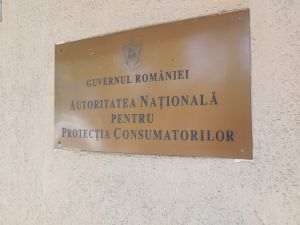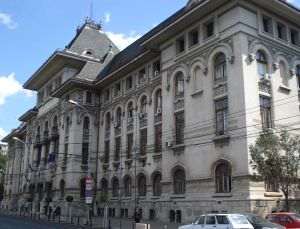Last year, the governments of Ciucă and Ciolacu failed to comply with the state budget law approved in December 2022, a normative act drawn up by the PSD-PNL governing coalition and which provided for an increase in budget expenditures, but also a considerable increase in revenues to the state budget through the prism the fight by ANAF officials of tax evasion, which exceeds 10 billion euros annually, according to statements made in September 2023 by Prime Minister Marcel Ciolacu.
When there were two months left until the government rotation scheduled for May, the members of the Ciucă government found that the Ministry of Finance was facing a revenue deficit of almost 4.7 billion lei, which risked exceeding 40 billion lei by the end of last year through in view of the uncontrolled growth of budget expenditures. That is why, from the end of April until the middle of June, when the government was taken over by Prime Minister Marcel Ciolacu, the leaders of the PSD-PNL coalition discussed several measures regarding the reduction of budget expenditures in order to maintain the deficit target established with the European Commission.
However, the calculation at home does not match the one from the fair, and Ciolacu and Ciucă had to give in, in the same period, to the Education employees, who suspended the school year requesting new salary increases. To these were added the employees of Health, and later, in August, those of the Ministry of Finance, who also demanded better working conditions and new salary increases.
On top of all these salary increases was added the unforeseen expense caused by the bankruptcy of the Euroins Romania company, a bankruptcy found by the ASF in mid-March 2023, an institution which, although it had signals regarding the negative financial situation of the said company, did not order the necessary measures for its recovery.
In all this difficult financial context, the Ciolacu government had to make a real slalom between demands to keep the budget deficit under control, introducing tax measures that, unfortunately, have a negative impact on the business environment, and negotiating with the European Commission the new target of budget deficit for 2023, which, instead of 4.4%, was supposed to become 5.5%.
Although Brussels agreed to the request of the government in Bucharest, the financial year resulted in a deficit of 5.68% of GDP, according to the budget execution presented by the Ministry of Finance on January 31, 2024, which means a minus of 89, 9 billion lei, 9.1 billion lei more than in 2022.
The only good news in the financial field came from the National Bank of Romania, the National Institute of Statistics and the European Commission. The BNR maintained the same monetary policy interest rate throughout last year, i.e. 7% per year, while the INS data showed that inflation was constantly reduced throughout last year, recording at the end of December 2023 a rate of of 6.6%, with an annual average of 10.4%, 0.6% higher than that forecast by the European Commission for last year (9.8%). During the past year, the European Commission transferred the money for the first two payment requests from the PNRR, which made the amount of allocation already received from Brussels, including the advances paid, exceed 10 billion euros. Moreover, at the end of the year, the Government also sent the third request for payment, amounting to more than 3 billion euros.
Otherwise, on the political level, we recorded the first government rotation in the history of the country, PSD and PNL taking over the examples of good practice from Brussels in this regard, despite the scandals that shook the Ciolacu government in the second half of the year, scandals of which the most important were the asylums of the horror at Voluntari - which led to the resignation of ministers Gabriela Firea and Marius Budăi, the explosion at Crevedia and the fire at Ferma Dacilor.
Despite these tragic events, last year ended with good news, coming on December 30 from the Council of Justice and Internal Affairs of the European Union: Romania, will be received alongside Bulgaria, on March 31, 2024 in the Schengen area with maritime borders and aerial.
• The increase in the budget deficit - a constant from the first months of 2023
The first two months of 2023 resulted in a budget deficit of 1.07% of GDP, i.e. 17.04 billion lei, higher than the budget deficit of 0.75% of GDP recorded in the first two months of 2022 According to the data published by the Ministry of Finance at the end of March, the deficit for the first two months of 2023 was mainly caused by the increase in the volume of investments by 85.8% more compared to the same period of the previous year, the compensation of bills related to energy consumption domestic and non-domestic electricity and natural gas in the amount of 1.6 billion lei, the larger volume of settlement countries of goods and services for medicines, the slowing down of revenue collections, as well as the influences of the implementation of the second stage of the Support Program for Romania.
The first major signal that the national economy is suffering was registered at the end of April 2023, when the Ministry of Finance published the budget execution for the first quarter, which showed a deficit of 1.42% (22.75 billion lei) of GDP. At that time, Adrian Câciu, the Minister of Finance in the Ciuca government, stated that the amount of uncollected taxes and fees in the first quarter of the year amounted to 4.7 billion lei, which would have meant a hole in the budget of about 20 billion lei per the entire year, given that the tax collection trend of the first three months would have been maintained until the end of 2023. Later, in June, estimates predicted a collection deficit between 20 and 40 billion lei.
In order to reduce this projected deficit, at the beginning of April, Prime Minister Nicolae Ciucă announced the reduction of public spending at the level of the central and local administration and asked ANAF to act in the area of large taxpayers, where problems in the collection of taxes and fees had been identified, a request that caused the dissatisfaction of the private business environment whose representatives declared that the problem is in the court of state companies.
In order to cover part of the deficit recorded in the budget revenues, the Government decided, on April 20, to supplement the amount that can be obtained through the framework program of government bond issues, "Medium Term Notes" (MTN Program). Through the adopted normative act, the maximum amount of 56 billion euros, or equivalent in any currency, was changed, with the value of 62 billion euros, or equivalent in any currency, to cover the gross financing needs through securities issues on the international capital markets for the period April 2023 - December 2024.
The measures taken by the Government during the spring could not, however, stop the trend of the budget deficit, and this was seen in the budget execution for the first five months of 2023, when a revenue deficit of 8.9 billion was recorded lei, only at ANAF. In this context, Lucian Heiuş, the president of ANAF, submitted his resignation on May 30, and Bogdan-Lari Mihei - the president of the Romanian Customs Authority - was dismissed on the same day.
For these reasons, in order to balance the state budget, the Government had to adopt an emergency ordinance by which it instituted austerity in the budget system, drastically reducing some chapters of public expenses and freezing the salaries of budget workers.
According to the normative act, for the rest of the year 2023, credit orderers of public institutions and authorities were obliged to reduce by 10% the expenditure on goods and services, with the exception of expenditure in the field of health and education. Another measure established the suspension of the filling of vacant or temporarily vacant positions in public institutions and authorities, with the exception of single positions, starting from the entry into force of the emergency ordinance, until December 31, 2023. The GEO also provided for the reduction by 50 % of the number of positions related to the cabinets established at the level of public dignity functions within the central public administration.
Despite all these imposed measures, the Government did not stop the increase in the budget deficit, which at the end of the first semester of 2023 reached 2.32% of GDP.
• ASF and the bankruptcy of Euroins
On top of the above situation, a real tsunami occurred in the insurance market on March 17, 2023, when the ASF announced the decision to withdraw the operating authorization of the Euroins Romania company, following the detection of signs of the company's state of insolvency. According to the ASF, the insurance company did not have the necessary solvency capital (SCR), in the amount of 2.19 billion lei, nor the funds to cover the MCR, in the amount of 1.75 billion lei. Following the scandal triggered by the insolvency of Euroins, a company that issued 2.76 million active RCA policies, the parliamentarians of the political opposition requested the dismissal of the entire management of ASF, an institution that has stood by for the past seven years with the bankruptcies of Carpatica, Astra Asigurări, City Insurance and Euroins. Moreover, on March 20, the entire management team had to give explanations before the members of the Economic, Industries and Services Committee in the Senate. Nicu Marcu, the president of the ASF, blamed some legislative loopholes and the poor cooperation of the Competition Council, while Cristian Roşu - the vice-president of the ASF for the insurance market - said that the bankruptcy of Euroins is something that happens at any time in the activity of a company, but sooner or later, that this event is part of the rules of the market economy. Following the hearings in the Parliament, it emerged that the state will be obliged to honor claims for compensation in Euroins case, in a total amount between 250 million euros and 350 million euros, compensations that will be paid by the Guarantee Fund of the Insured. However, the compensation would be much higher, between 440 million and 500 million euros, according to the audit report drawn up by EIOPA.
In order to protect the insured, last year, ASF initiated two drafts of normative acts regarding the capping of RCA prices, acts that were approved by the Ciucă government and later by the Ciolacu government.
At the end of last year, those responsible for bankruptcies in the insurance market did not receive from the Parliament a renewal of their mandates at the head of the ASF, an institution that now has a new management team, under the guidance of President Alexandru Petrescu.
• ANPC broke the banking system
Although the banking system represented, in this financial context, an oasis of stability that the Government called upon whenever it needed to finance budget expenditures, the banks were stormed, during May, by the ANPC commissioners, who decided , by the orders of President Horia Constantinescu, the sanctioning of 19 banks with 50,000 lei each, for misleading commercial practices regarding the method of calculating rates for long-term bank loans. Moreover, Horia Constantinescu, the president of ANPC, issued an order for each bank to issue new repayment schedules, both for current loans and for future ones, where the principal of the loan due must be paid by consumers in equal installments , over the entire crediting period, in relation to the interest related to the credit. The banks sanctioned by ANPC contested in court the minutes issued by the public institution and the orders of President Horia Constantinescu, many of these orders having already been suspended by the administrative-fiscal litigation courts until the merits are judged.
• The strike in Education shook the political class
The measures taken by the Government to keep the budget deficit under control provoked, during May, large protests from the trade unions representing civil servants and employees in Health and Education. Dissatisfied with the fact that, for many years, the political parties that have governed Romania have not respected the political pact by which they had established to allocate 6% of the GDP for Education, but also due to the low salaries, especially for beginning teachers, the education unions have triggered on May 22 a general strike that led to a change in the dates of registration and taking of Baccalaureate exams and National Assessments, a strike that continued at the beginning of June, although the Government adopted a normative act regarding a phased increase in teachers' salaries. That protest led to the postponement of the government rotation, so Marcel Ciolacu was forced to wait for the end of the strike in Education, to become prime minister instead of Nicolae Ciucă. In order to calm the teachers and to get them to suspend the protest action, the Ciucă government adopted several normative acts by which they established the salary level of the beginning teachers, the salary increase of the teaching staff and auxiliary teaching staff, as well as a salary scale in the Education system that will enter into force on January 1, 2024.
Following the adoption of these normative acts, the teachers suspended their strike and the National Assessment for 8th grade graduates and the Baccalaureate exams for high school graduates took place.
After the end of the teachers' strike, the government rotation took place on June 15, with the Ciolacu government replacing the Ciucă Cabinet, according to the governing coalition agreement signed in November 2021, but after the leaders of the PSD-PNL coalition had previously decided to remove them from the government of those from UDMR. Thus, Marcel Ciolacu became prime minister, Nicolae Ciucă became president of the Senate, and the UDMR went into opposition alongside USR, AUR, Forţa Dreptei and Reper.
A few days after the investment, the Ciolacu government received good news on June 21, 2023, when OMV and Romgaz announced the approval of the development plan for the Domino and Pelican Sud commercial natural gas fields in the Neptun Deep perimeter, in the Black Sea offshore area. According to the exploitation plan, OMV Petrom and Romgaz will invest up to 4 billion euros for the development phase of the project, which will generate a production of about 100 billion cubic meters of natural gas. The actual production of natural gas will begin in 2027, and then our country will become the largest gas producer in the European Union. Production at the plateau will be approximately 8 billion cubic meters annually (~140,000 boe/d) for approximately 10 years.
• Horror asylums and the Crevedia tragedy - the milestones of the first two months of the Ciolacu government
The ink on the oath signed on June 15, 2023 in Cotroceni de noua has not even dried well government team that the Executive was shaken in the first month of government by the "horror asylums" scandal, which led to the resignation of ministers Gabriela Firea and Marius Budăi, indicated by the political opposition as the main ones responsible for the inactivity of the state institutions in the case of the ill-treatment applied to the elderly in the three care centers for the elderly and more located within the radius of the city of Voluntari, Ilfov county. The whole tragedy came to light on July 4, 2023, when DIICOT prosecutors descended on three social assistance homes - "Armonia", "Sfântul Gabriel cel Viteaz" and "Casa Cora" - in the city of Voluntari. Following the searches, 26 suspects were detained, who, according to DIICOT, had constituted a criminal network that had mistreated and even tortured 98 people in the respective care centers. According to the prosecutors, the total damage was estimated at 5.2 million lei. Following the discovery of these cases, the Government ordered controls at the national level which revealed 51 unauthorized centers and which led to the suspension of activity in 110 social assistance centers out of the 5,197 centers that provide social services in our country.
A day before the descent of the DIICOT prosecutors into Voluntari, Eduard Hellvig resigned from the position of general director of the SRI, without his resignation having anything to do with what had happened in Voluntari. After his resignation, the "honorary" resignations of Marius Budai and Gabriela Firea followed, from the positions of Minister of Labor and Minister of the Family, respectively.
The Voluntari scandal was followed at the end of August by the Crevedia tragedy, caused by the explosion at an illegally operating LPG station. As a result of the deflagration, a total of six people died and 52 people were injured, and the investigations revealed the corruption within the Romanian state and the inefficiency of the activity of some public institutions that must deal with the control and supervision of the companies operating in certain economic sectors. Following the tragic incident that took place on August 26, several houses were destroyed, two people died and 58 people were injured, 12 of them very seriously, some of them being transferred to hospitals in Belgium, Germany, Norway, Austria and Italy. Later, four more seriously injured people were added to the list of deaths, who were intubated in the intensive care units of Bucharest hospitals. Of the total number of injured people, 43 are employees of the Ministry of Internal Affairs - 39 firefighters, two policemen and two gendarmes. Following this tragedy, Prime Minister Marcel Ciolacu ordered the verification of all LPG stations in the country, an action that led to the discovery of over 2,000 deficiencies and the imposition of contravention fines that totaled over 1.3 million euros.
• The private business environment, forced to bear the recklessness of the Government regarding budget expenditures
The month of August exposed the flawed way in which the central authorities managed the public budget. Thus, the publication of the budget execution for the first seven months of 2023 showed that the Government was facing a budget deficit of 2.43% of GDP, which practically put us off the path of reaching, at the end of the year, the deficit target of 4.4 % of GDP previously agreed with the European Commission. In order not to endanger the European funds allocated to our country, the Ciolacu Cabinet completed during August and the first half of September a set of fiscal measures and a reform of the public system, which it discussed in Brussels with Commission officials European.
However, the measures designed to reform and restructure the public system have caused controversy, and ANAF employees and local public administration officials protested in front of the Government headquarters, requesting that the situation be analyzed in each authority and each public institution before the cancellation of some vacancies and the merger some institutions.
Threatened by the European Commission with the cutting of allocations from EU funds, the Ciolacu government had to, after inheriting the draft law on new fees and taxes throughout the summer season, go with it to the Parliament. According to the law assumed by Prime Minister Marcel Ciolacu on September 26 in Parliament, the taxation of banks changes so that they will pay a tax of 2% on turnover in 2024 and 2025, double the initial provision of 1%. At the same time, large companies, with turnovers exceeding 50 million euros, will have to pay a tax of 1% on turnover, if the tax paid on profit, accumulated from the beginning of the fiscal year/fiscal year and modified until the end quarter/calculation year, is lower than the minimum turnover tax. Moreover, the normative act also changes the taxation of microenterprises to the catchers, the respective economic agents having to pay, from January 1, 2024, the following taxes on profit: 1%, for micro-enterprises that achieve incomes that do not exceed 60,000 euros; 3%, for micro-enterprises that achieve revenues over 60,000 euros or carry out certain activities, main or secondary, corresponding to specific CAEN codes. The government has decided to limit the application of the tax relief granted to employees in the IT&C sector until December 31, 2028 inclusive, as well as the tax relief granted to the construction, agricultural and food industry sectors. Moreover, employees in the respective sectors of activity will also pay CASS contributions. As far as labor taxation is concerned, the law adopted by the Government Parliament establishes the 10% taxation - for CASS - of meal vouchers and holiday vouchers granted to employees.
Following the amendment of the Fiscal Code, the representatives of the Executive stated that they will end the 2023 budget year with a deficit of 5.5%, as opposed to the 4.4% assumed in 2020 in the discussions with the European Commission. In this sense, the Government received a breath of oxygen from the European Commission, which decided to approve the second payment request from the National Recovery and Resilience Plan and transferred to the Romanian state the 2.76 billion euros, representing the amount requested by Executive.
Unfortunately for the Ciolacu Cabinet, despite the new fiscal measures, the financial situation for the 3rd quarter published by the Ministry of Finance in October showed a deficit of 56.46 billion lei, i.e. 3.55% of GDP, higher by 0, 6% of GDP compared to the deficit of 41.70 billion lei, i.e. 2.96% of GDP for the first nine months of 2022. And this deficit reached the threshold of 5.68% at the end of 2023, i.e. minus 89.9 billions of lei received from the state budget.
• Zelenski - in Romania, Cîţu - investigated by DNA
In October 2023, over a year and a half after the illegal launch of the aggression in Ukraine by the Russian Federation, we recorded the first visit to our country by Ukrainian President Volodymyr Zelensky, who arrived in Bucharest, after visiting all of the European Union, Great Britain and the USA. Although our country was the last EU state visited by the Ukrainian president since the beginning of the war, Volodymyr Zelensky and his counterpart Klaus Iohannis signed a joint statement on October 10, 2023, which states that relations between Ukraine and Romania will develop on the basis of a Strategic Partnership, that the amount of Ukrainian grain transited through Romania will be increased from 2 million tons to 4 million tons per month, that Ukrainian pilots will be trained in the training center in our country to operate F-16 fighter jets, that it is necessary that the Romanians in Ukraine enjoy the same treatment from the authorities in Kiev as the Ukrainians in our country in respect of rights and that the government in Kiev and the one in Bucharest will solve the problem of the artificial distinction between the Romanian language and the so-called Moldavian language".
A month after Zelenski's visit, the Romanian political scene was shaken, when the National Anticorruption Directorate requested the Parliament and President Klaus Iohannis to approve the criminal prosecution of former Prime Minister Florin Cîţu and former Ministers of Health, Vlad Voiculescu and Ioana Mihăilă for abuse of office in the case of the purchase of anti-Covid vaccines, for a damage estimated at one billion euros through the purchase of a larger amount of vaccine than was actually necessary. Former Prime Minister Florin Cîţu lost his parliamentary immunity on November 29, after the Senate plenary approved the DNA's request to start the criminal investigation on behalf of the current liberal senator. Two days before, President Klaus Iohannis granted the request of the General Prosecutor's Office and gave the go-ahead to start the criminal investigation for the two former Ministers of Health. Later, at the end of December, Andrei Baciu, former secretary of state at the Ministry of Health, who resigned from the position of president of the National Health Insurance Company, was also prosecuted in the same case.
• The government approves higher budget revenues, unrealistic in the opinion of the Fiscal Council
The month of December brought us the adoption by Parliament, before the Winter Holidays, of the state budget for 2024, which foresees an increase in the Gross Domestic Product by 3.4% and a cash budget deficit of 5%. According to the normative act adopted by the Parliament, the Gross Domestic Product will reach 1,734 billion lei at the end of 2024, the average gross monthly salary taken into the calculation of the state budget being 4,733 lei. State budget revenues (exclusive) are scheduled to increase in 2024 by 20% compared to 2023, and public expenditures are increased by 6.56%, given that the impact of pension increase will be 25 billion lei this year. The 20% increase in exclusive state budget revenues is an unrealistic premise, according to the Fiscal Council's Opinion on the state budget law, a premise that risks leading to a larger budget deficit at the end of 2024 than the one estimated by the Government.
The end of the year brought us two good news on the political level. The first consists in the appointment of the former president of the Romanian Senate, Anca Dragu - former Minister of Finance in the Cioloş government -, as governor of the National Bank of the Republic of Moldova, a position she occupies following her vote by the political majority in the Chisinau Parliament .
The second piece of good news came on December 30, when the Justice and Home Affairs Council (JHA) of the European Union announced that an agreement had been reached for Romania and Bulgaria to enter the Schengen area with air and sea borders from March 31 2024, but without offering a calendar regarding the accession with land borders.




























































